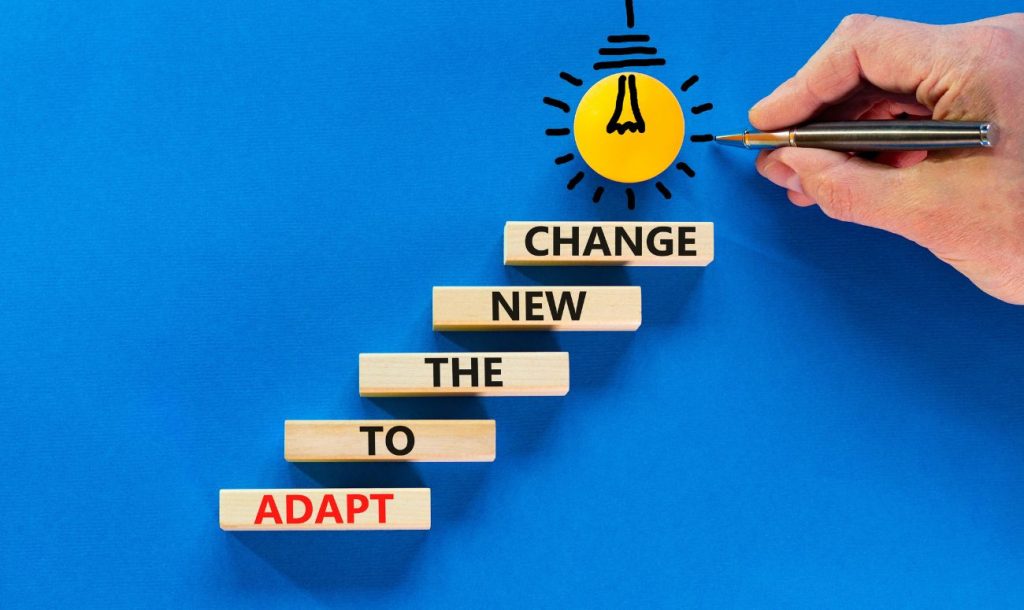Negative thoughts are unpleasant, especially when they have the power to reduce the quality of your performance and undermine your relationships with others. It’s widely believed that if you can change how you look at certain events or circumstances, you may be able to change the feelings and the actions you take. In order to do that, we can slowly train ourselves over time on how to think right by implementing simple techniques. Cognitive restructuring is one such useful technique for understanding occasional unhappy feelings and moods. It also helps to change the negative or distorted thinking that often puts us into a bad mood and helps us approach situations in a more positive frame of mind. To improve our quality of life, it’s essential to understand the importance of adapting to change.
So how exactly do you restructure a negative thought and adapt to change in the thought process?
How To Understand The Importance Of Adapting To Change?
Its common for a lot of us to experience cognitive distortions — thought patterns that create an, unhealthy view of reality. Cognitive distortions often lead to depression, anxiety, relationship problems, and self-sabotaging behaviours.
As the name suggests, cognitive restructuring techniques deconstruct unhelpful thoughts and rebuild them in a more balanced and accurate way.
Although anyone can use cognitive restructuring techniques to improve their thinking habits, many people find it helpful to collaborate with a therapist. A therapist can help you learn which cognitive distortions are affecting you. They can also explain how and why a thought is irrational or inaccurate.
Having said that, here are a few strategies that form the core of cognitive restructuring.

6 Ways To Restructure Your Mind To Adapt To Change
1. Identify Automatic Thoughts
To change an unproductive or negative thought pattern, you must identify the mistake you’re making. It’s thereby imperative to notice the thoughts that spark negative feelings and states of mind.
It’s also useful to notice when and where the thoughts come up. It may be that you’re more vulnerable to cognitive distortions in certain situations like before an important meeting or an exam. Knowing what those situations are, may help you prepare in advance.
2. Writing Is Better
Remember that when you’re vulnerable, it can help you catch your negative thought and change it before it dominates your mood and gets the better of you.
Many people find it helpful to journal as part of the process. Even if you aren’t sure at first what’s caused your anxiety or sadness, writing down your thoughts may help you recognize a cognitive distortion or pattern. As you practice self-monitoring, you’ll likely start noticing distorted thought patterns more quickly.

3. Gather And Analyze The Evidence
Cognitive distortions are biased and inaccurate, but they can also be deeply embedded. Dislodging and replacing them requires evidence about how rational they are.
Hence, it’s important to gather evidence first. Keep a track of the events that trigger a response, including details such as who you were with and what you were doing. You may want to record how strong each response is, and which memories came up as a result. You can gather evidence for or against your thoughts, assumptions, and beliefs.
Start off by listing facts that show a belief is accurate and compare it to facts that show the belief is incorrect in order to create balanced thought patterns.
4. Question Yourself
Reflect on your answers to some tough questions. For example: What do I get from calling myself an idiot? How does it benefit? What do I get by frequently engaging in negative self-talk? What benefits would I receive from positive thoughts? What costs are associated with thinking more positively? What in my past made me think negatively? What should be my next move?
5. Alternative Thoughts
Cognitive restructuring helps people figure new ways of looking at the things that happen to them. The practice also involves coming up with alternative explanations that are rational and positive to replace the distortions that have been adopted over time. Generating alternatives can also include creating positive affirmations to replace inaccurate or unhelpful thought patterns.
6. Positive Affirmations
When you wake up, feel gratitude for the new day. Write down daily affirmations that you believe, say: “I love my job,” or “I make positive contributions at work.” If a negative thought creeps in, think of a success you’ve had and the feeling that went with it. Positive thinking is a daily task that requires efforts but it’s worth it. Practice 20 minutes meditation to change your life.
Say these affirmations daily and watch them change your life.
Final Word
While cognitive restructuring has shown to have a positive effect on reducing frequent negative thinking, they are for guidance only. If your negative thoughts are causing significant or persistent unhappiness, consider working through it with a certified mental health professional.
About the author:
Suhasini Jha is a Mumbai-based ex-journalist who has previously worked with Firstpost and Moneycontrol.
Read More: How To Eat Your Way To Healthy Skin And A Healthy Gut
Like & Follow ThinkRight.me on Facebook, Instagram, Twitter, Pinterest and Telegram to stay connected.






























